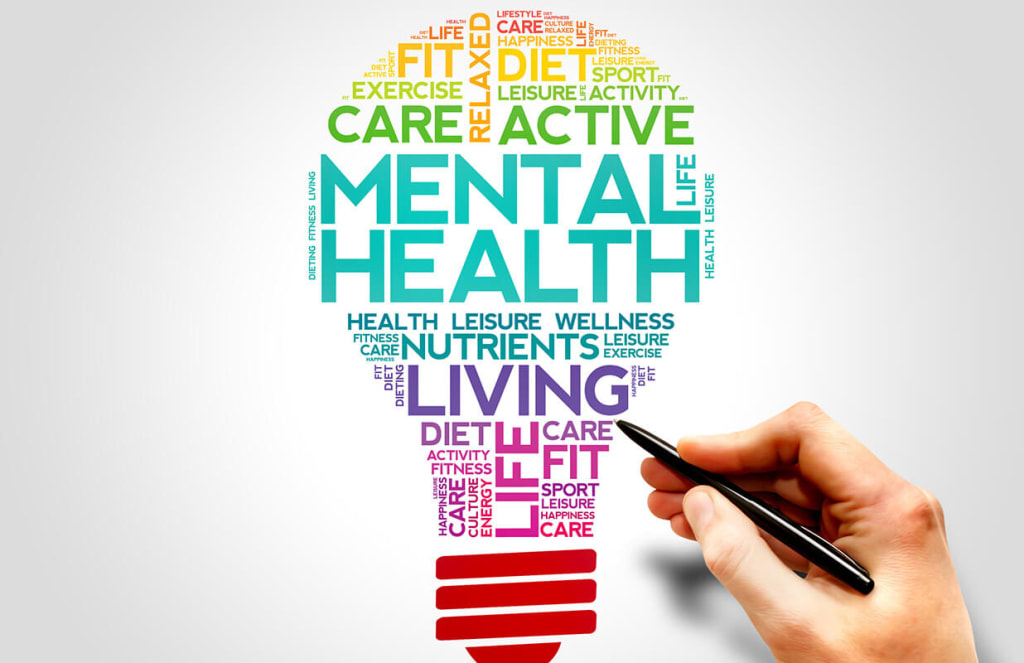
Mental health is an important aspect of overall well-being and plays a crucial role in determining an individual’s quality of life. Mental health refers to a person's emotional, psychological, and social well-being and encompasses various aspects of one's life, including thoughts, feelings, behaviors, and relationships. A person with good mental health is able to cope with the normal stresses of life, work productively, and contribute to their community.
However, mental health can be impacted by various factors such as stress, trauma, illness, and substance abuse. When mental health is negatively impacted, it can lead to the development of mental health conditions such as depression, anxiety, bipolar disorder, schizophrenia, and eating disorders, among others. These conditions can have a profound impact on individuals, their families, and society as a whole.
Mental health and its relationship with physical health are closely interlinked. Mental health conditions can lead to physical health problems, and physical health problems can also impact mental health. For example, chronic pain or a serious illness can lead to depression, and depression can lead to decreased immune function and increased risk of physical health problems.
There are several key indicators of good mental health, including the ability to:
Form and maintain healthy relationships with others
Manage stress and cope with life's challenges
Experience and express a range of emotions
Think clearly and make decisions
Engage in activities that bring joy and satisfaction
There are several strategies that can help promote good mental health and prevent the development of mental health conditions. Some of these strategies include:
Practicing self-care: This can include engaging in activities such as exercise, healthy eating, getting enough sleep, and practicing mindfulness or meditation.
Seeking support from loved ones: Surrounding yourself with supportive friends and family members can help you manage stress and cope with life's challenges.
Seeking professional help: If you are experiencing symptoms of a mental health condition, it is important to seek help from a mental health professional. This can include talking to a doctor, counselor, or therapist.
Engaging in physical activity: Regular physical activity can help reduce stress, improve mood, and boost overall well-being.
Building and maintaining healthy relationships: Having strong, supportive relationships with others can provide a source of comfort and help you manage stress and life's challenges.
Finding meaning and purpose: Engaging in activities that bring meaning and purpose to your life can help improve your overall sense of well-being.
Seeking help for substance abuse: Substance abuse can have a negative impact on mental health, and it is important to seek help if you are struggling with substance abuse.
Mental health conditions are common and can impact people of all ages, genders, and ethnicities. In fact, 1 in 5 adults in the United States experience mental illness in any given year. Some of the most common mental health conditions include:
Depression: Depression is a common and serious medical illness that negatively affects how you feel, the way you think, and how you act. Symptoms of depression can include feelings of sadness, hopelessness, and a loss of interest in activities that were once enjoyable.
Anxiety: Anxiety is a normal and often healthy emotion, but when it becomes excessive or chronic, it can interfere with daily activities and be debilitating. Symptoms of anxiety can include excessive worry, restlessness, and muscle tension.
Bipolar disorder: Bipolar disorder is a mental health condition characterized by extreme mood swings that can range from manic episodes of intense energy and euphoria to depressive episodes of sadness and hopelessness.
Mental health refers to a person's overall psychological well-being. It includes the individual's emotional, psychological, and social state of being and how they interact with their environment. Good mental health is essential for overall health and happiness, and it allows individuals to cope with the challenges of life and achieve their full potential. However, mental health can be negatively impacted by a range of factors, such as stress, trauma, illness, or substance abuse. Mental health conditions, such as depression, anxiety, and schizophrenia, can have serious consequences for individuals and society. It is important to seek help if you are experiencing symptoms of a mental health condition and to take steps to maintain good mental health, such as practicing self-care, seeking support from loved ones, and seeking professional help if needed.






Comments (1)
Rightly explained 👍